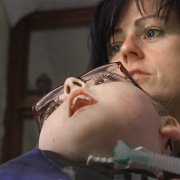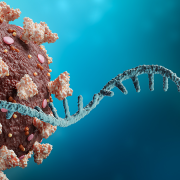Whole genome sequencing – personalising cancer care
We explore how data from the 100,000 Genomes Project is still being used to great effect in cancer prevention and treatment
Whole genome sequencing can play an important role in delivering personalised care to cancer patients, a study has demonstrated. The research, led by NHS England and Genomics England, Queen Mary University of London, Guy’s and St Thomas’ NHS Foundation Trust and the University of Westminster and published in Nature Medicine, supports the expansion of genomic testing in cancer care across the NHS.
“We are starting to realise the promise of precision oncology that was envisioned ten years ago when the 100,000 Genomes Project was launched,” said oncology consultant and cancer genomics lead at Guy’s and St Thomas’ NHS Foundation Trust and co-lead author of the research Dr Nirupa Murugaesu .
“By collecting long-term clinical data alongside genomic data, the study has created a first-of-its-kind resource for clinicians to better predict outcomes and tailor treatments, which will allow them to inform, prepare, and manage the expectations of patients more effectively.”
100,000 Genomes Project
Understanding the genetic changes in tumour cells can help clinicians to choose the most effective treatment for patients. This not only gives patients the best possible outcomes in terms of achieving remission or more years of life, but it can also mean that ineffective treatments – and the side effects that come with them – can be avoided.
The study used data from the 100,000 Genomes Project, which generated ‘paired’ whole genome sequences: one from the patients’ tumour DNA and the other from their non-tumour – or constitutional – DNA, all linked to health records. Comparing tumour and constitutional genomes highlights the differences between them and makes it easier to identify which changes are driving the cancer.
In more than 90% of brain tumour samples, and more than 50% of lung and colon cancers, the study found identifiable genetic changes that could inform decision-making around surgery or other treatment options.
Constitutional variants
As previously stated, the ‘constitutional genome’ is what we call a person’s own genome – the information encoded in their DNA, inherited from their parents and present in almost every cell of the body.
While using the constitutional genome as a reference for comparison with tumour genomes is useful, it can also offer its own clues more directly.
The team found that more than 10% of ovarian cancers were linked to inherited genetic variants present in the constitutional genome. This rose to 30% in high-grade serous ovarian cancers, the subtype with the poorest prognosis. Patients with these variants also had earlier age of onset.
These variants could also have implications for testing relatives, some of whom may wish to explore risk reduction approaches.
Past, present and future
The 100,000 Genomes Project was a key forerunner of the NHS Genomic Medicine Service and its findings will continue to inform its development through studies such as this one.
Chief Scientific Officer for NHS England Professor Dame Sue Hill said: “With this new study, data from the 100,000 Genomes Project continues to build the evidence for the use of genomic testing to deliver precise molecular diagnoses to inform personalised treatments and interventions for patients”
“The insights gained in this study, in which genomic patterns or profiles have been mapped out in thousands of patients with different types of cancer, support and inform the NHS Genomic Medicine Service in providing a comprehensive genomic testing service for patients with cancer.”
Learn more: Our two-week online course around genomic testing in cancer is now open and free for all NHS staff.









